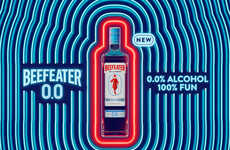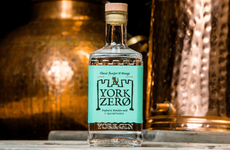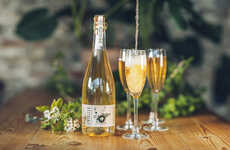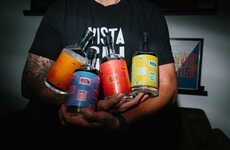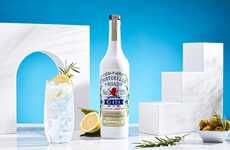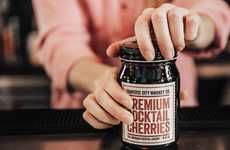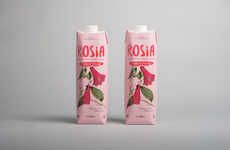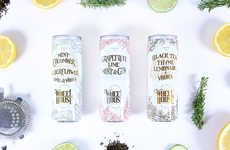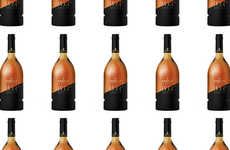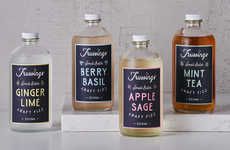
Escubac Is an Amazing Replacement for Traditional Gin and Tonics
Justin Lam — January 5, 2018 — Lifestyle
References: bonappetit & sweetdram
Escubac and tonics are emerging as a better version of the traditional gin and tonic. The flavor of this old world liqueur is close to gin, but unlike the popular spirit, Escubac also contains a floral bouquet of citrus peel, warm spices, vanilla, herbs, and floral botanicals. This is perhaps why Escubac and tonics work so well, as the flavors lie somewhere in-between gin and something else completely unique. Unlike gin, Escubac carries with it a natural, but subtle sweetness. Some have compared the sweetness to a roasted carrot with a mild vanilla and raisin undertones. Escubac is perhaps best used as a gin replacement, but can also be enjoyed on its own with a ice and a splash of soda.
Escubac is currently produced by British company Sweetdram. The company began producing the liqueur after discovering the recipe while sifting through French distilling manuals from the 1700's. While the maceration and blending of botanicals is done in Sweetdram's London workshop, the final distillation is handled in France.
Escubac is currently produced by British company Sweetdram. The company began producing the liqueur after discovering the recipe while sifting through French distilling manuals from the 1700's. While the maceration and blending of botanicals is done in Sweetdram's London workshop, the final distillation is handled in France.
Trend Themes
1. Botanical Liqueurs - Creating new botanical liqueurs that offer a unique flavor profile between traditional spirits like gin and something else entirely.
2. Alternative Gin - Developing alternative gin options that provide a different taste experience with floral botanicals and subtle sweetness.
3. Craft Distilling - Expanding the market for craft distillers who rediscover historic recipes and techniques to create innovative liqueurs.
Industry Implications
1. Alcoholic Beverages - The alcoholic beverage industry can explore the production of botanical liqueurs and alternative gin as new product offerings.
2. Craft Distilleries - Craft distilleries have an opportunity to experiment with botanical recipes and positioning themselves as producers of unique gin replacements.
3. Mixology - Mixology professionals can incorporate botanical liqueurs into their cocktail recipes to offer customers new and exciting taste profiles.
4.1
Score
Popularity
Activity
Freshness

